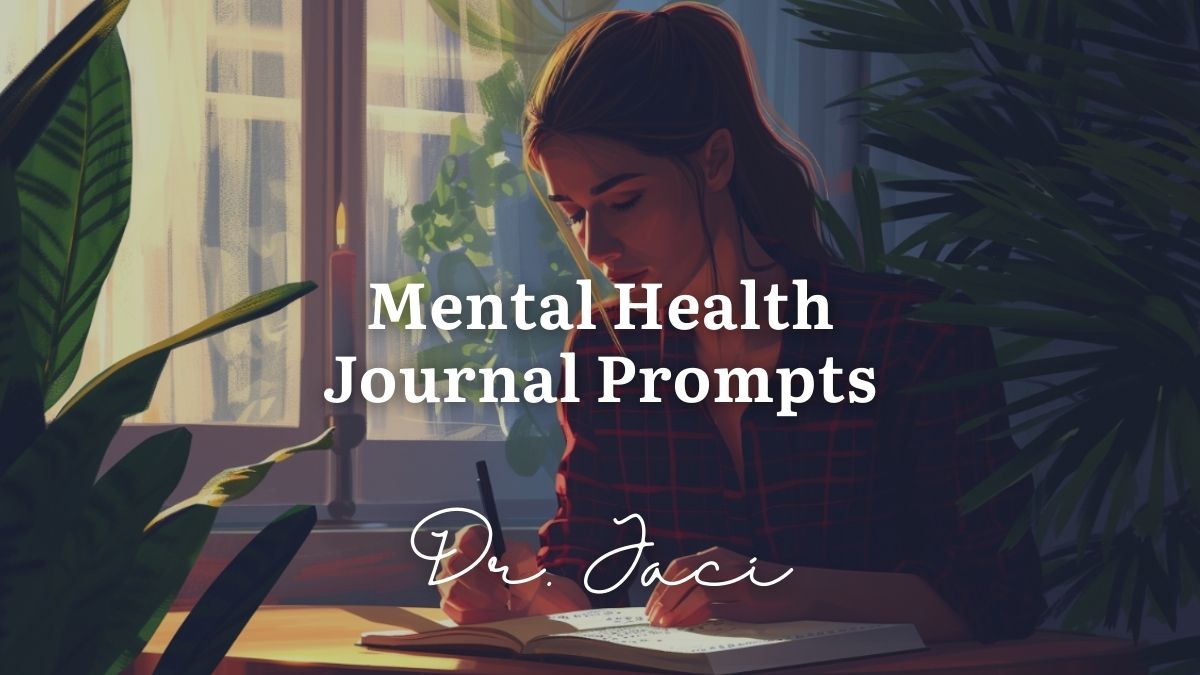Mental health is as important as physical health, and keeping a journal can be a helpful tool to improve your emotional well-being.
Writing in a journal regularly can help you process your emotions, gain clarity, and relieve stress.
In this post, I will share 15 mental health journal prompts to help you prioritize self-care, reduce anxiety, and cultivate gratitude.
What is Journaling for Mental Health?
Journaling for mental health is a self-care practice that involves writing about your thoughts, feelings, and experiences.
By putting your thoughts on paper, you can process your emotions and gain clarity.
Journaling can be a helpful tool for managing stress, reducing anxiety, and improving your overall mental health.
It’s a form of self-expression that can help you identify patterns and triggers that impact your emotional well-being.
Why Use Journal Prompts?

Journal prompts are specific questions or statements that can help you get started with journaling.
They can help you focus on a specific topic, reflect on your emotions, and gain a deeper understanding of your inner world.
Using prompts can also prevent writer’s block and help you explore different aspects of your life.
Mental Health Journal Prompts
- How do you feel right now? Take a few moments to check in with yourself and write down how you’re feeling at the moment. Describe any physical sensations, emotions, or thoughts that come to mind.
- What are you grateful for today? Write down at least three things you’re grateful for today. They can be small or big things, as long as they bring you joy and appreciation.
- What is your biggest fear? Write down your biggest fear and explore why it scares you. Try to identify what triggers this fear and how you can overcome it.
- What are your top values? Write down your top three values and reflect on how you’re living in alignment with them. Are there any areas of your life where you could do better?
- What are your goals for the month/week? Write down your goals for the month or week and break them down into smaller, achievable steps. Track your progress and celebrate your wins.
- What is your favorite memory? Write about a happy memory that brings you joy. Describe the scene, the people involved, and the emotions you felt at the time.
- What do you need right now? Write down what you need right now, whether it’s rest, self-care, or support from loved ones. Reflect on how you can prioritize your needs and take action to meet them.
- What is stressing you out? Write down any stressors in your life and explore how they’re impacting your mental health. Identify any triggers and brainstorm ways to reduce stress.
- What is your self-care routine? Write down your current self-care routine and reflect on how it’s serving you. Are there any areas where you could improve or add more self-care practices?
- What makes you feel confident? Write down the things that make you feel confident and empowered. Reflect on how you can incorporate more of these things into your life.
- What is a recent accomplishment? Write about a recent accomplishment, no matter how small. Celebrate your wins and reflect on the hard work that went into achieving them.
- What do you love about yourself? Write down three things you love about yourself, whether it’s a personality trait, a skill, or a physical feature. Practice self-love and gratitude.
- What are your favorite self-help books or podcasts? Write down your favorite self-help books or podcasts and reflect on how they’ve helped you improve your mental health. Consider sharing them with others who might benefit from them as well.
- What are your fears and doubts about the future? Write down any fears or doubts you have about the future and explore why they worry you. Identify any steps you can take to feel more prepared and empowered.
- What is something you’re proud of that you’ve never shared with anyone? Write about something you’re proud of that you’ve never shared with anyone. This can be a personal accomplishment, a hidden talent, or a secret passion. Celebrate yourself and your uniqueness.
FAQ
How often should I journal for mental health?
You can journal for mental health as often as you like. It’s important to find a routine that works for you and fits into your schedule. Some people journal daily, while others prefer to journal a few times a week or when they feel the need to process their emotions.
Do I need a special journal for mental health?
No, you don’t need a special journal for mental health. You can use any notebook or piece of paper that you have on hand. However, some people prefer to use a specific journal that is dedicated to their mental health practice.
What if I don’t know what to write about?
If you don’t know what to write about, try starting with a prompt or a simple question, like “How do I feel right now?” or “What am I grateful for today?” Remember that there are no right or wrong answers when it comes to journaling.
Can journaling replace therapy?
Journaling can be a helpful supplement to therapy, but it cannot replace therapy. If you’re struggling with mental health issues, it’s important to seek professional help from a licensed therapist or counselor.
Can journaling be triggering?
Journaling can sometimes bring up difficult emotions or memories that may be triggering. If this happens, it’s important to take a break and practice self-care. Consider speaking with a therapist or counselor if you need additional support.

